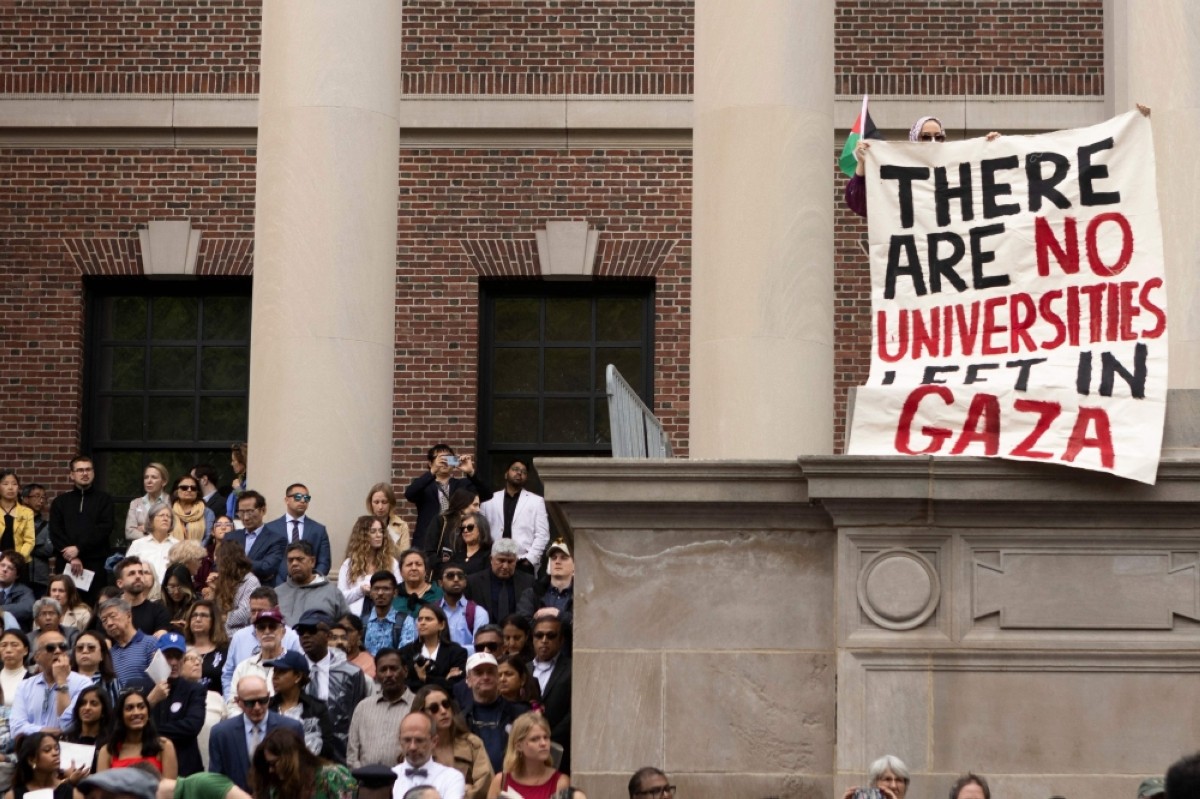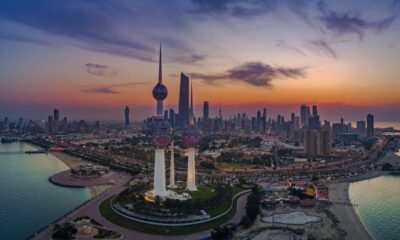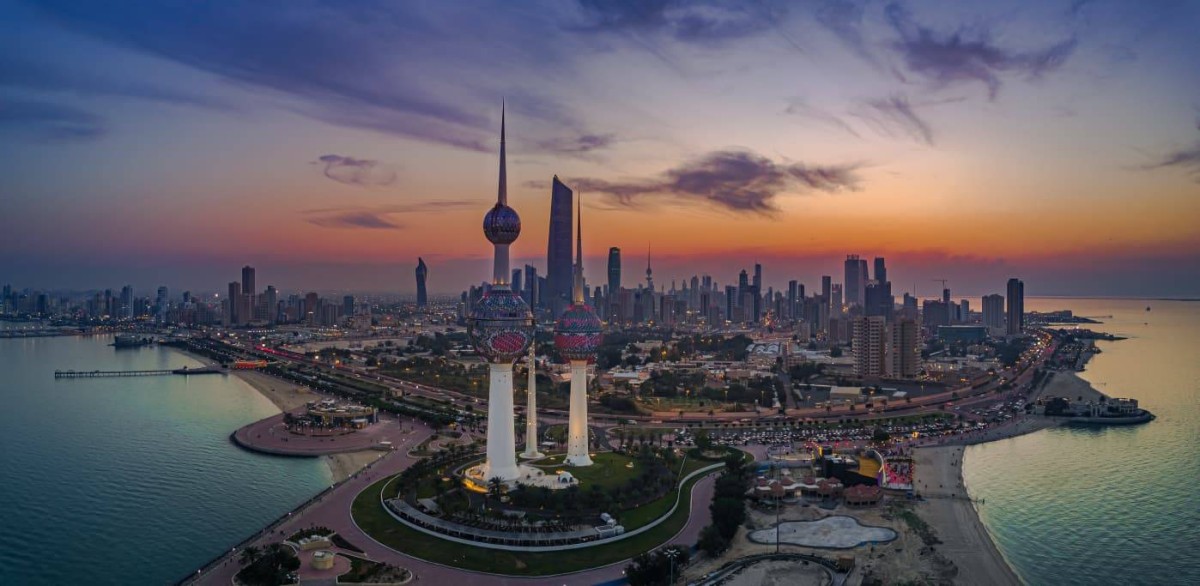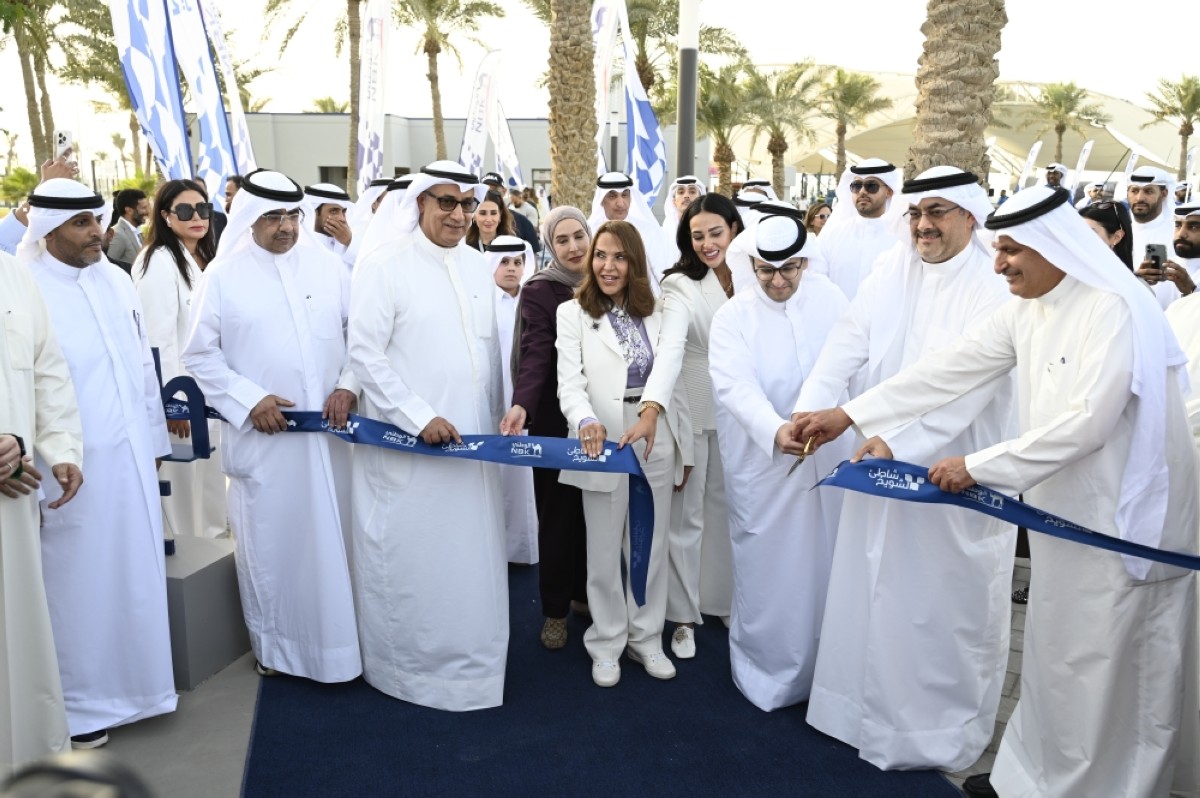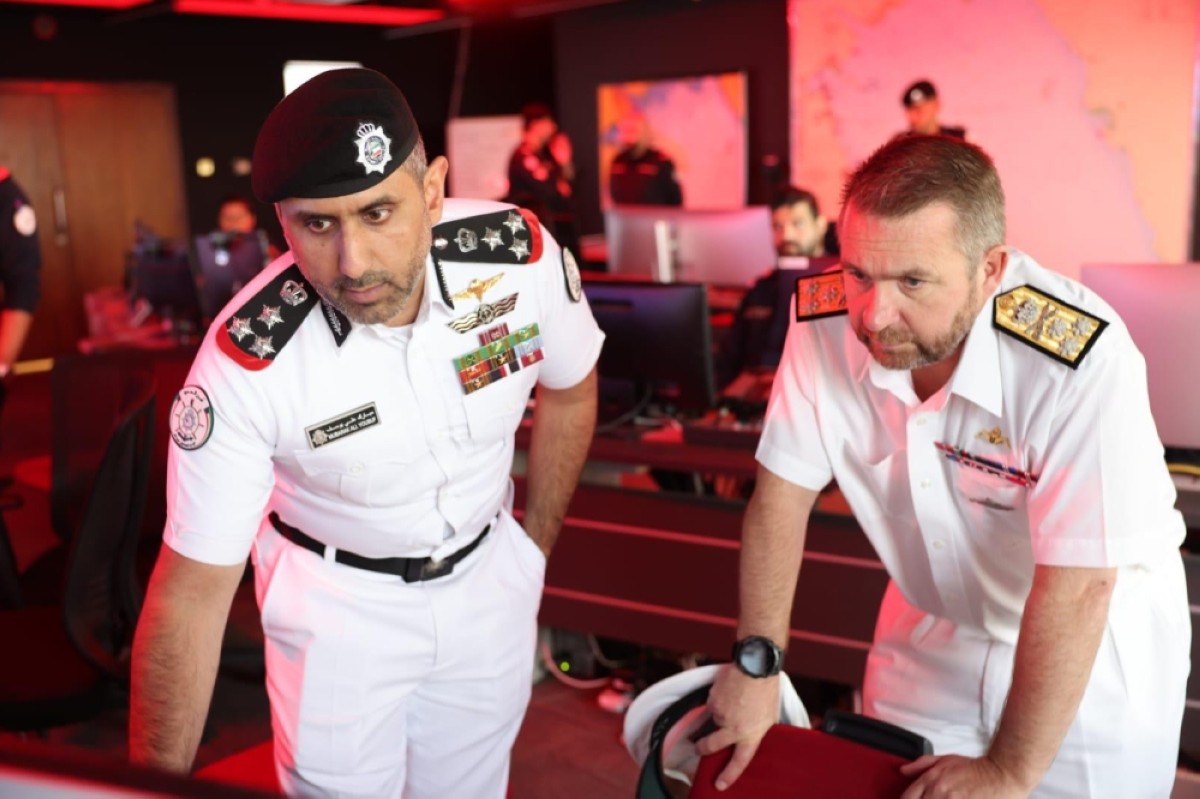By Nebal Snan and Dena Alfadhli
KUWAIT: When Amal, a young Kuwaiti student, joined Columbia University’s encampment in early 2024, she wanted to take a principled stand for Palestine. “My identity as a Kuwaiti student made the issue a lot more personal,” she said. “The people in Palestine are my brothers and sisters in language and religion. It’s important to uplift their voices no matter where we are.”
What began as a peaceful protest became a defining moment in her life. For many people in Kuwait watching from afar, the US response to pro-Palestinian activism and the crackdown on international students that followed has tarnished the long-standing image of America as a beacon of knowledge and free speech.
Attack on campus
The Columbia encampment was among the first in a wave of protests across US campuses calling for divestment from companies complicit in human rights violations in Palestine. Amal describes the space as “built by students, for students,” where people shared food, cared for one another, and engaged in honest, meaningful conversations.
NEW YORK: Students and pro-Palestine activists face police as they gather outside of Columbia University to demand divestment from entities complicit in human rights violations in Palestine on on April 18, 2024 in New York City.
NEW YORK: Student demonstrators occupy the pro-Palestine “Gaza Solidarity Encampment” on the West Lawn of Columbia University on April 24, 2024.
But as the academic year wore on, the mood shifted. “Going to school didn’t feel so safe,” she recalled. Several Zionist faculty members, she said, acted in racist and provocative ways – particularly toward Muslim and Arab students. Her department building, where many students and faculty were people of color, was vandalized. Eventually, the university sent in riot police to forcibly clear the encampment on April 30, 2024.
“It was disappointing but not surprising,” Amal said. “If anything, this highlights how universities are not these ostensible places for knowledge production and honest conversation. The university is also an arm of the state, enforcing mainstream hegemonic ideology.” Amal asked to use a pseudonym due to fears that speaking out could jeopardize her visa status.
International students in the crosshairs
Columbia’s high-profile visibility in the pro-Palestine movement has made it a prime target in President Donald Trump’s broader crackdown on international students. Since taking office in January, his administration has revoked thousands of student visas and green cards. An NBC News investigation found that students in at least 32 states have been affected.
Many of those targeted by the administration were involved in campus pro-Palestine protests, had ties to Palestine, or expressed support for Gaza on social media.
Some, like Columbia student Mahmoud Khalil and Tufts PhD student Rümeysa Öztürk, have been arrested. The administration is using a Cold War-era 1952 immigration law to justify deportations, citing “serious adverse foreign policy consequences.” In some cases, even minor infractions – like a speeding ticket – appear to have been used as grounds for removal.
Amal didn’t suffer legal repercussions for her participation in the protests and remains a student at the university. But other Kuwaiti students seem to have been affected by the crackdown. Kuwait’s Minister of Higher Education, Nader Al-Jallal, recently revealed that 40 Kuwaiti students have had their US visas revoked. Though he did not offer details, Arabic-language media reported that Kuwait is coordinating with the US embassy to reinstate their visas and help affected students complete their semester online. The US embassy declined to comment when asked by Kuwait Times about the matter.
Fear from afar
Abdullah, an expat student in Kuwait accepted into a top US university, has been watching the news unfold with growing anxiety. A lifelong admirer of American culture, he had always dreamed of studying there.
“Growing up, watching movies, sports, and all kinds of media, the US always felt like a dream,” he said. “Now I feel sad, disappointed.”
Like many young people in Kuwait, Abdullah has posted on his social media accounts in solidarity with Palestine. But his posts weighed heavily on his mind now. “The US feels less like the land of freedom and opportunity, and more like a place where you’re controlled – where every word and thought has to align with the government.” He asked to use a pseudonym over concerns about his pending visa application.
A new layer of surveillance
Abdullah’s fears are not unfounded. Since 2019, US visa applicants are required to submit their social media handles. Even after a visa is approved, travelers face uncertainty at the border, where officials are authorized to search phones upon arrival. This practice has led to visa cancellations in the past. In March 2025, a French scientist was turned away at the border after US agents found private messages on his phone criticizing the Trump administration.
“My fear is the unknown, knowing that at any second I could be stripped of my visa and have to return back to my country, without a genuine valid reason. It doesn’t hold the sense of security anymore when everyday could be your last day,” he said
Adding to the uncertainty, US embassies were ordered last week to pause student visa appointments as the administration ramps up social media screening. US officials defend the policy as a standard practice to ensure US national security.
“Every prospective traveler to the United States undergoes security vetting to protect US citizens at home,” said the US embassy in Kuwait in a statement last week. “This is not a new policy. Like all sovereign countries, the United States has always strived to ascertain the identity of visa applicants, reasons for their intended travel, as well as their plans while there.”
The embassy added that visa applicants may continue to submit applications and encouraged them to apply “well in advance” of their anticipated travel date.
‘Why take the chance?’
The Trump administration has thrown a series of curveballs at colleges and universities, leaving many institutions – and their students – on edge. At least $2 billion in research grants have already been slashed, threatening innovation in fields ranging from medicine to consumer technology. But beyond the immediate disruptions, educators and analysts warn of deeper, longer-term consequences: an ideological shift in the US education system that could reshape its values and mission for years to come. They say the administration appears to be targeting institutions it views as politically unfriendly, with no clear standards or process – creating an atmosphere of uncertainty that’s as destabilizing as the policies themselves.
“There is a fear knowing I’m committing two years of my life to living in this country, and really not knowing where the Trump administration is taking things,” said Alma, another student recently accepted into Columbia University’s master’s program. Alma has asked to use a pseudonym due to concerns over her legal status in the US.
The challenges are made harder by her parents’ growing concern. “They saw how stressed I was when I was travelling most recently, and I don’t think they want me to live a life of stress,” she said. “They’re like, ‘Why would you be there? We fought our entire lives for you to be in a safe environment.’”
Her parents are not alone. Salman, a Kuwaiti father, is now advising his son to look elsewhere for university studies. “Every few weeks we hear of people being turned away at the border, visas canceled without warning. It seems like a risk to his future, and to his safety,” he said. “Why take that chance when you can get the same quality education in the UK, or even here in Kuwait or the Gulf?”
Amideast, an NGO that promotes American education abroad, declined to comment when contacted by Kuwait Times to ask about how they are addressing parental concerns.
Salma and Amal still hope the quality of education will be worth the risk. But there’s a growing realization that the US ideal of free speech and opportunity may no longer hold true for many students from the Arab world. “The idea that the West – or America – has more free speech than other countries is not true,” Amal said.




